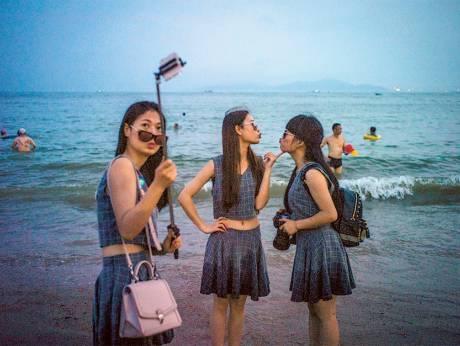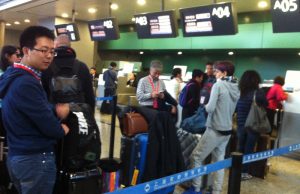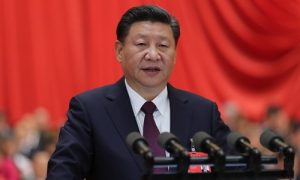Chinese tourists spurn SE Asia holidays

Beijing : Key Southeast Asian markets have seen a marked drop in Chinese tourists, a growth sector across much of the globe, as air crashes and geopolitical tensions take their toll.
While China spends more on outbound travel than any other nation, up 28 per cent to $165bn last year, the reversal of fortunes for some of Southeast Asia’s main tourism destinations underlines the risks that countries face as they look to China for growth.
The trend is particularly concerning for countries such as Malaysia and Indonesia that were banking on Chinese tourists to help boost their slowing economies.
“These Asian markets have been the early recipients of the largest Chinese outbound flows and have quickly adapted to a recognition that the China market will progressively swamp all others,” said Will Horton, an analyst at the Centre for Aviation, a research company, in Hong Kong.
“Chinese media and shifts in political winds can abruptly — but often temporarily — turn off traffic flows. Excessive reliance on any one tourism source inevitably creates this problem.”xcluding Thailand, which has seen a rebound in Chinese tourist numbers since another military coup last year, the number of Chinese visitors to Southeast Asia fell in the first three months of this year to 1.5m, from 1.9m a year earlier, according to the Centre for Aviation.
That signals a continuing trend, with Chinese arrivals in Southeast Asia, excluding Thailand, falling to 6.2m last year from 6.4m in 2013.
By contrast, Japan, helped by its weakening currency, and the rest of North Asia have seen a jump in Chinese tourists, up 38 per cent to 3.3m in the first quarter of this year, compared to a year earlier.
Michael Beer, an aviation analyst at Citigroup in Hong Kong, said that the deadly crashes last year involving Malaysia Airlines’ flights MH370 and MH17 and AirAsia Indonesia’s QZ8501 have shaken Chinese tourists’ confidence in travelling to the region.Malaysia’s much-criticised handling of the loss of MH370, which disappeared mysteriously en route to Beijing with 152 Chinese among the 239 people on board, has added to the reluctance to travel there.
Vietnam and the Philippines have suffered because of rising political tensions connected to their maritime disputes with Beijing in the South China Sea.
Analysts say that while the most Chinese tourists would not feel any direct impact, the political climate, and its reporting in the sometimes nationalistic state-controlled media, affects their travel decisions.
Joey, a 28-year-old from Shanghai, was recently persuaded by her friends to drop plans to visit Vietnam because they were still concerned about a small outbreak of anti-Chinese rioting last year.
“I think even though the incident was a long time ago, the concept of Vietnam as a disorderly place hasn’t changed,” she said.
Mr Horton of the Centre for Aviation argues that countries and airlines need to take a more nuanced approach to the lucrative Chinese market.
“There is little doubt that in the long term Chinese tourists will change the face of global tourism,” he said. “But managing the short and medium term blips will be a big part of a China tourism strategy.” Source :Ben Bland, Financial Times ( ft.com)
July 2015














